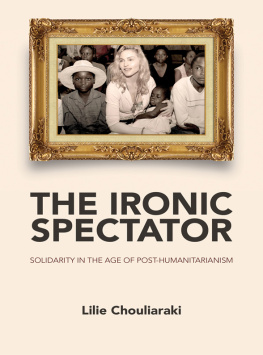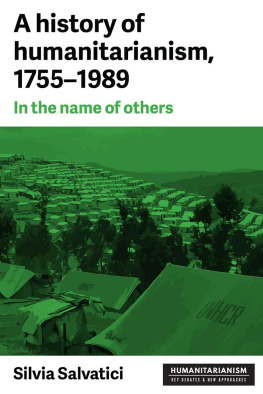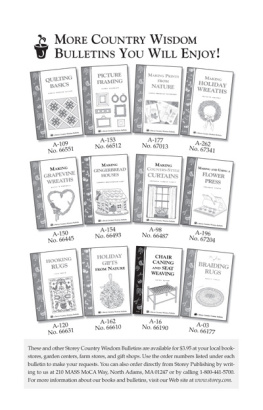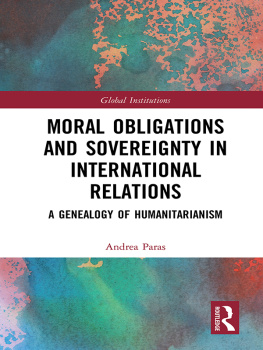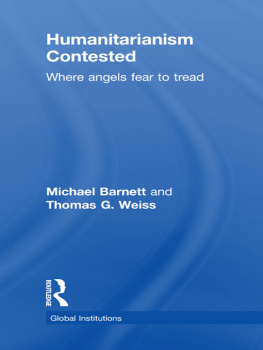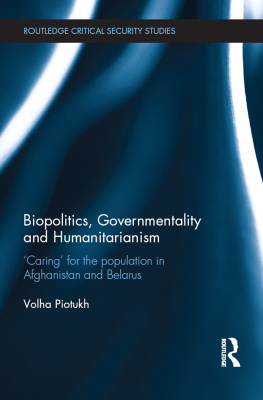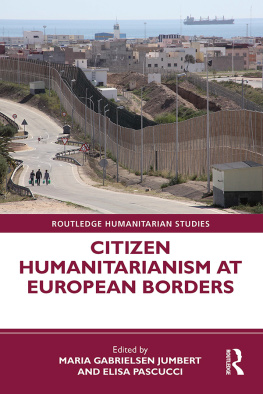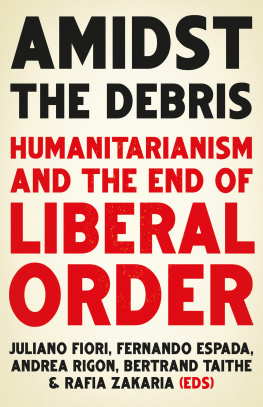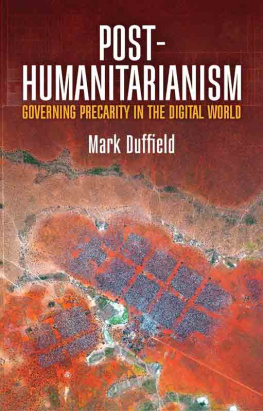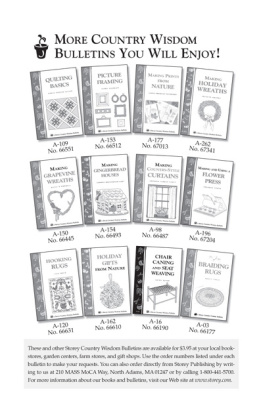Lilie Chouliaraki - The Ironic Spectator: Solidarity in the Age of Post-Humanitarianism
Here you can read online Lilie Chouliaraki - The Ironic Spectator: Solidarity in the Age of Post-Humanitarianism full text of the book (entire story) in english for free. Download pdf and epub, get meaning, cover and reviews about this ebook. year: 2013, genre: Romance novel. Description of the work, (preface) as well as reviews are available. Best literature library LitArk.com created for fans of good reading and offers a wide selection of genres:
Romance novel
Science fiction
Adventure
Detective
Science
History
Home and family
Prose
Art
Politics
Computer
Non-fiction
Religion
Business
Children
Humor
Choose a favorite category and find really read worthwhile books. Enjoy immersion in the world of imagination, feel the emotions of the characters or learn something new for yourself, make an fascinating discovery.
- Book:The Ironic Spectator: Solidarity in the Age of Post-Humanitarianism
- Author:
- Genre:
- Year:2013
- Rating:4 / 5
- Favourites:Add to favourites
- Your mark:
- 80
- 1
- 2
- 3
- 4
- 5
The Ironic Spectator: Solidarity in the Age of Post-Humanitarianism: summary, description and annotation
We offer to read an annotation, description, summary or preface (depends on what the author of the book "The Ironic Spectator: Solidarity in the Age of Post-Humanitarianism" wrote himself). If you haven't found the necessary information about the book — write in the comments, we will try to find it.
The Ironic Spectator: Solidarity in the Age of Post-Humanitarianism — read online for free the complete book (whole text) full work
Below is the text of the book, divided by pages. System saving the place of the last page read, allows you to conveniently read the book "The Ironic Spectator: Solidarity in the Age of Post-Humanitarianism" online for free, without having to search again every time where you left off. Put a bookmark, and you can go to the page where you finished reading at any time.
Font size:
Interval:
Bookmark:
The Ironic Spectator
In memory of my mother, Thomais
The Ironic Spectator
Solidarity in the Age of Post-Humanitarianism
LILIE CHOULIARAKI
polity
Copyright Lilie Chouliaraki 2013
The right of Lilie Chouliaraki to be identified as Author of this Work has been asserted in accordance with the UK Copyright, Designs and Patents Act 1988.
First published in 2013 by Polity Press
Polity Press
65 Bridge Street
Cambridge CB2 1UR, UK
Polity Press
350 Main Street
Malden, MA 02148, USA
All rights reserved. Except for the quotation of short passages for the purpose of criticism and review, no part of this publication may be reproduced, stored in a retrieval system, or transmitted, in any form or by any means, electronic, mechanical, photocopying, recording or otherwise, without the prior permission of the publisher.
ISBN-13: 978-0-7456-6433-0
A catalogue record for this book is available from the British Library.
The publisher has used its best endeavours to ensure that the URLs for external websites referred to in this book are correct and active at the time of going to press. However, the publisher has no responsibility for the websites and can make no guarantee that a site will remain live or that the content is or will remain appropriate.
Every effort has been made to trace all copyright holders, but if any have been inadvertently overlooked the publisher will be pleased to include any necessary credits in any subsequent reprint or edition.
For further information on Polity, visit our website: www.politybooks.com
Detailed Contents
Figures
Acknowledgements
In writing this book, I have been privileged to be surrounded by excellent colleagues, whose scholarly passion has been a constant source of inspiration for me. I have also been fortunate to direct my Departments PhD Programme and be challenged by a number of talented and dedicated students who always pushed me beyond my intellectual comfort zone. I thank them all for this. Furthermore, I am grateful to the participants of various seminars, symposia and conferences, within and outside the LSE, who offered me invaluable feedback in the process of working out the argument of this book. These include the LSEs Atrocity, Suffering and Human Rights group, the Gender Institutes reading group and the Centre for the Study of Global Governance, as well as intellectual encounters at Lancaster, Loughborough, Leicester, Cambridge, Brunel, Sussex, the Institute of Education, University of London, CELSA-Sorbonne in Paris, Utrecht, Stockholm, Copenhagen, Helsinki, Chicago and Boston.
Let me also thank those who offered their permission for the use of various visual and linguistic texts in the empirical chapters of the book. These include the Estate of Audrey Hepburn and photographer John Isaac for the UNICEF picture of Audrey Hepburn; PLAN, Oxfam, Amnesty International and UNWFP for visual material from their campaigns and the BBC for permission to use their linguistic texts on earthquake news.
Last but not least, I am grateful to Daphne and Elias for always being there for me. Without their love and support, this book would not have been possible.
1 Solidarity and Spectatorship
Get involved. Feeling inspired? ActionAids supporters experience incredible feelings of happiness, warmth and pride all the time. Theres no limit to the scale of amazing feelings you can get by getting involved. To discover what your feeling might be, take the ActionAid interactive quiz today.
Find Your Feeling: How Could ActionAid Make You Feel? is a 30-second quiz that invites us to explore what our true feeling towards this major humanitarian brand might be by clicking on a number of questions: which picture moves us most, for instance? The child next door happily swinging away? A group of protesters in Latin America or a couple of women hugging and smiling at the camera? Depending on our choice of emotions towards these distant others, we are offered a certain self-description: we might be warm and fluffy or inspired and excited, and, having been in touch with our emotions, we are then invited to click on the link and find out more about ActionAid.
It is the relationship between how I feel and what I can do about distant others, so clearly thrown into relief in the ActionAid appeal, that concerns me in this book. There is no doubt that emotion has always played a central role in the communication of solidarity, yet, I argue, there is something distinct about the ways in which the self figures in contemporary humanitarianism. This is obvious when we consider earlier Red Cross appeals, for instance, where the question of what can I do? is raised through shocking images of emaciated children, or Amnesty International ones, where the question is answered through a call to personalized letter-writing for the liberation of prisoners of conscience. Neither of these two examples returns the imperative to act on vulnerable strangers to ourselves, asking us to get in touch with our feelings in order to express our solidarity with them.
Taking my point of departure in this new emotionality, I explore the ways in which the communication of solidarity has changed in the course of the past four decades. A crucial period for humanitarianism, the 19702010 time-span, is characterized by three major, seemingly unconnected but ultimately intersecting, transformations: the instrumentalization of the aid and development field; the retreat of the grand narratives of solidarity; and the increasing technologization of communication. Whilst each transformation has been extensively explored in its own right, the co-articulation of the three and, importantly, the implications of this co-articulation for the changing meaning of solidarity, have remained relatively untouched.
In drawing attention to the new emotionality of the Find Your Feeling appeal, then, what I propose is that the meaning of solidarity today should be approached as simultaneously defined, or overdetermined, by the branding strategies of ActionAid, by a generalized reluctance to accept common humanity as the motivation for our actions and by the interactive possibilities of online media. It is, I argue, only when we examine solidarity as a problem of communication, that is, as a moral claim seeking to reconcile the competing demands of market, politics and the media, that we can better understand how the spectacle of suffering is subtly but surely turning the West into a specific kind of public actor the ironic spectator of vulnerable others.
Irony refers to a disposition of detached knowingness, a self-conscious-suspicion vis--vis all claims to truth, which comes from acknowledging that there is always a disjunction between what is said and what exists that there are no longer grand narratives to hold the two together (Rorty 1989). Whilst irony is often translated into postmodern postures of cool cynicism that reject moral attachment in favour of playful agnosticism, the spectacle of vulnerable others, I argue, complicates this posture in that, by virtue of confronting us with their suffering, it continues to raise the question of what to do it continues to call upon us as moral actors. The ironic spectator is, in this sense, an impure or ambivalent figure that stands, at once, as sceptical towards any moral appeal to solidary action and, yet, open to doing something about those who suffer. How has, then, the ironic spectator emerged through the communicative structure of solidarity, across time? And how does this twilight figure manage today to negotiate and resolve the tensions (political, economic, technological) of solidarity that our times press upon us?
Next pageFont size:
Interval:
Bookmark:
Similar books «The Ironic Spectator: Solidarity in the Age of Post-Humanitarianism»
Look at similar books to The Ironic Spectator: Solidarity in the Age of Post-Humanitarianism. We have selected literature similar in name and meaning in the hope of providing readers with more options to find new, interesting, not yet read works.
Discussion, reviews of the book The Ironic Spectator: Solidarity in the Age of Post-Humanitarianism and just readers' own opinions. Leave your comments, write what you think about the work, its meaning or the main characters. Specify what exactly you liked and what you didn't like, and why you think so.

